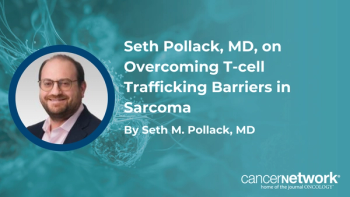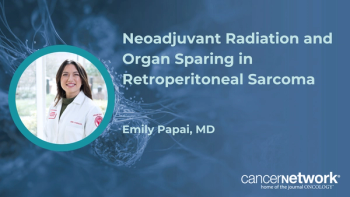
Three SNPs Associated With Overall Survival in Pediatric Ewing Sarcoma
Three single-nucleotide polymorphisms were identified that are significantly associated with OS in two separate cohorts of pediatric Ewing sarcoma patients.
Three single-nucleotide polymorphisms (SNPs) were identified that are significantly associated with overall survival (OS) in two separate cohorts of pediatric Ewing sarcoma patients. The genes could be used as prognostic markers in this malignancy.
After osteosarcoma, Ewing sarcoma is the second most common primary malignant bone tumor in children and adolescents, accounting for about 2% of all childhood cancers. “In Ewing sarcoma, 30%–40% of patients with a localized primary tumor and 60%–80% of patients with disseminated disease experience relapse after treatment and have a dismal prognosis, with a likelihood of long-term survival after recurrence lower than 15%,” wrote study authors led by Anna Gonzalez-Neira, PhD, of the Spanish National Cancer Research Centre in Madrid.
The authors hypothesized that genetic variants in genes that encode drug transporters, drug-metabolizing enzymes, and/or drug targets could explain the variability in response to treatment. They analyzed 384 SNPs in 24 genes involved in drug absorption, distribution, metabolism, and elimination in two Ewing sarcoma cohorts. One was a discovery cohort with 106 children in Spain, and the other a replication cohort of 389 children across Europe. The results were
Twenty of the SNPs were found to be associated with tumor response in the Spanish cohort, but none of those associations could be replicated in the European cohort.
With regard to OS, 43 SNPs were significantly associated (P < .05) with OS in the Spanish cohort after adjustments for age at diagnosis, presence of metastasis at diagnosis, and recurrence. Three of those associations were replicated in the European cohort.
The strongest association between an SNP and OS was for an intronic polymorphism in ABCC6. Patients with C-allele homozygotes had a substantially higher risk of death than others, with a hazard ratio in the Spanish cohort of 14.30 (95% CI, 1.53–134; P = .020), and in the European cohort of 9.28 (95% CI, 2.20–39.2; P = .0024). No patient carrying the CC genotype lived for 5 years beyond diagnosis, while the 5-year survival rate for patients carrying one or two copies of the G allele was 74% in the discovery cohort, and 65% in the replication cohort.
Another intronic SNP in ABCB1 was also significantly associated with OS in both cohorts, though it was not as strong an association. Similarly, an SNP in the CYP2C8 gene also was associated with OS.
The authors wrote that both ABCC6 and ABCB1 are in the ATP-binding cassette transporter superfamily, which have previously been implicated in mediating drug resistance. CYP2C8, meanwhile, is involved in oxidative metabolism of some Ewing sarcoma drugs, particularly cyclophosphamide and ifosfamide.
“These findings highlight the clinical relevance of these genes as prognostic markers, although experimental verification of putative regulatory function will be required,” the authors concluded.
Newsletter
Stay up to date on recent advances in the multidisciplinary approach to cancer.





































